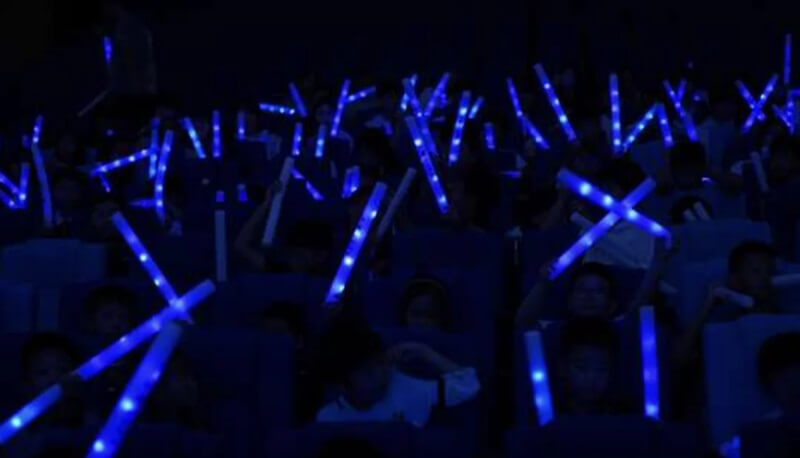Schools can be the site for a lot of progress when it comes to protecting the environment, such as when they reintroduce native plants to campus. However, they're also large institutions, so when they make wasteful decisions, it has a big impact. One frustrated staffer just called out a move by their school that could be felt for 100 years or more.
What happened?
In a post on r/Anticonsumption, the employee shared a photo of an on-campus event. "My school bought 1,000 of these styrofoam things with LED lights and batteries inside," they complained. "They were all thrown away immediately after the assembly."

The photo shows bleachers in a darkened room, lit only by the blue glow from hundreds of the light-up sticks. Each one looks about as long as a human arm, and students are waving them in the air.
"Unnecessary waste might be a good subject to bring up at a school board meeting," one commenter said.
Why do a few light-up toys matter?
These items combine two of the worst kinds of trash: styrofoam and e-waste.
Styrofoam is being banned in certain areas because it is bad for people and the environment. It doesn't break down for decades since it's made of plastic, and it easily breaks up into microplastics, which have been linked to serious health problems including cancer.
E-waste, or electronic waste, includes everything from complex computers all the way down to simple batteries and LED lights. It's a problem because toxic chemicals from inside the items can leak out as they corrode. Many waste facilities aren't designed to handle those chemicals, so they can pollute the environment.
Plus, since the school has so many important things it could spend money on to improve students' education, it's almost insulting to see it buy junk instead.
What else could be done with these items?
As commenters pointed out, the sticks were probably thrown away because they're designed to be single-use. "Probably not designed to be recharged, die forever shortly," they said.
However, another commenter replied, "Not with some clever cutting and gluing shenanigans they don't."
Depending on the school and the age of the students, it does seem like these cheap toys could have been recycled into a science project.
What's being done about e-waste more broadly?
If you find you've got e-waste on your hands, it's time to cash in! Lots of stores have e-waste recycling programs, and you can get rewards such as store credit.
Otherwise, check with local recycling centers to see which ones are able to process e-waste.
Join our free newsletter for cool news and actionable info that makes it easy to help yourself while helping the planet.









